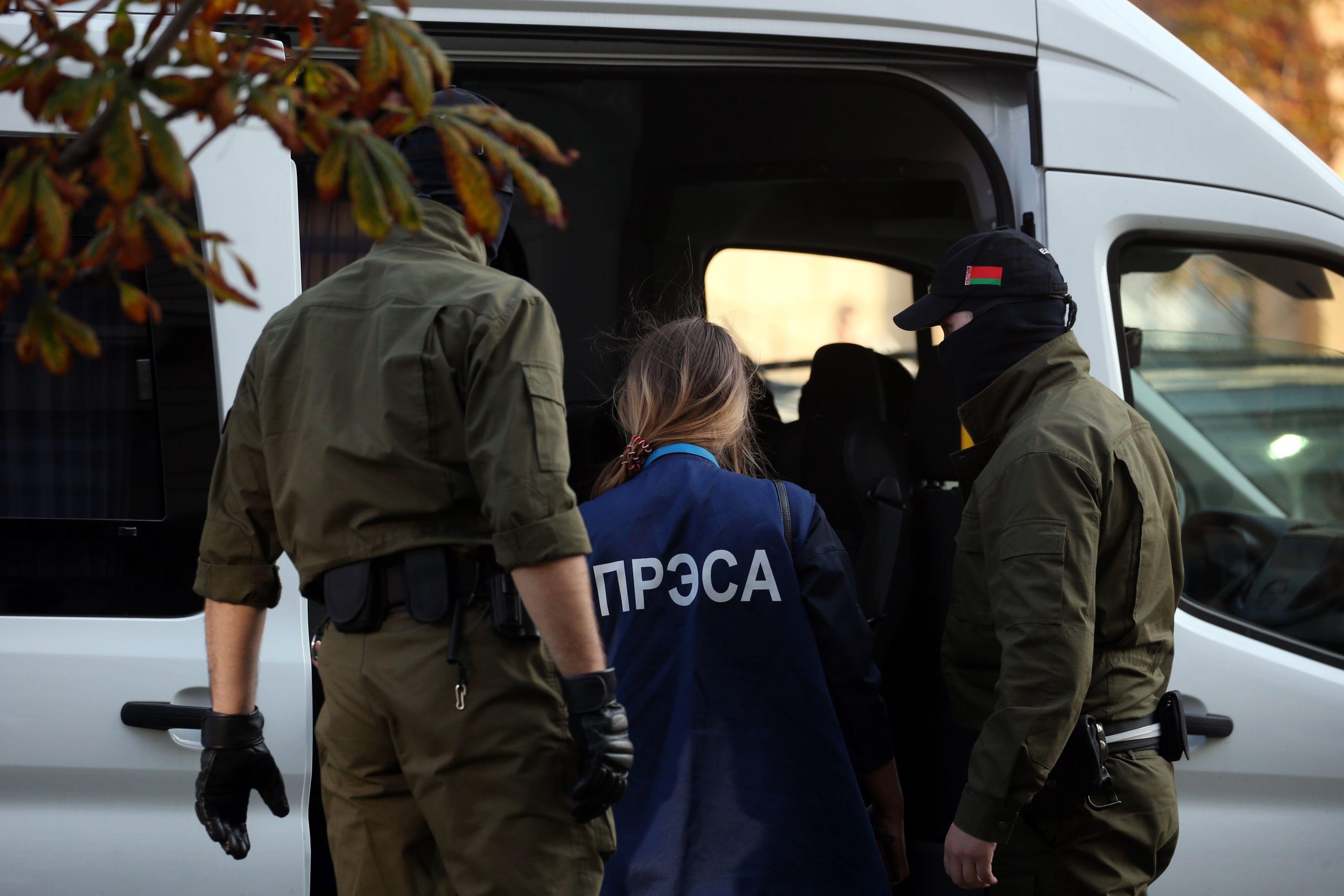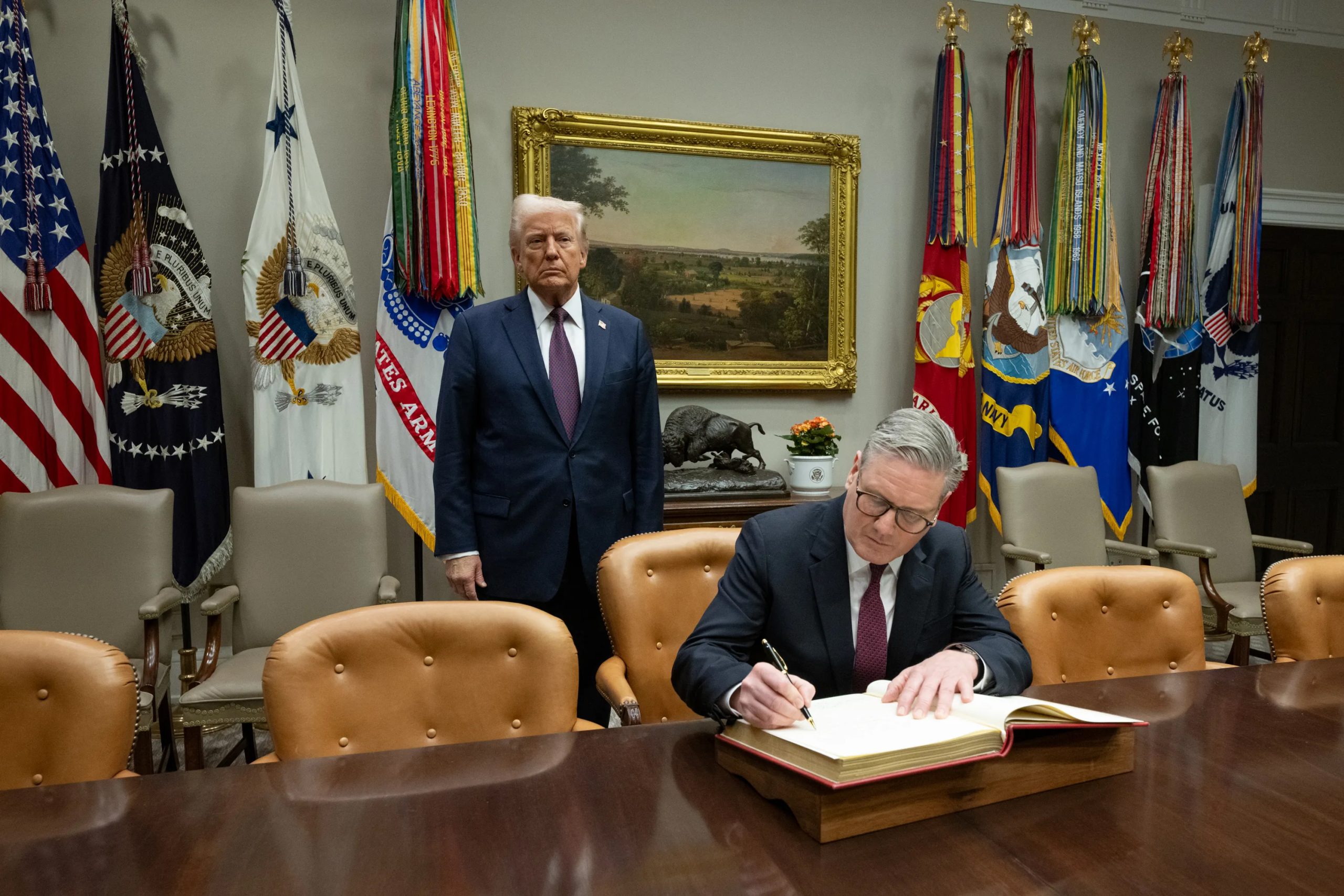[vc_row][vc_column][vc_single_image image=”116804″ img_size=”full” add_caption=”yes”][vc_column_text]The diversion of a Ryanair plane to Minsk over the weekend on the orders of Belaruisan president Alexander Lukashenko and the subsequent detention of independent journalist Roman Protasevich is the latest incident in a clampdown on independent media in the country.
Protasevich, working for Telegram channel Belamova, has been living in exile in Poland and Lithuania since 2019 because of concerns for his safety. His name appears on the List of Organizations and Individuals Involved in Terrorist Activities published by the State Security Committee (KGB), an includion which led him to referring to himself as “the first ever terrorist journalist” on his Twitter account.
Belarusian citizens increasingly have to go to independent media outlets such as Belamova, Nexta, Tut.by and others to find out the truth about what is happening in their country.An opinion poll conducted by Chatham House and released in February 2021 found that independent were by far the most trusted media.
As a result, president Alexander Lukashenko wants them shut down.
It is clear from the actions against Protasevich and others that the Belarusian authorities are trying to silence dissenting voices, constantly increasing the level of pressure on independent press representatives and grossly violating the right of their citizens to information. In official discourse, there are constant references to the “information war” against the state.
This latest actions of the Lukashenko regime ramps up what was already unprecedented pressure on the country’s journalists. RSF’s World Press Freedom Index shows that Belarus is Europe’s most dangerous country for those working in the media.
According to data from the Belarusian Association of Journalists (BAJ), there were more than 480 arrests of journalists in 2020. In 62 of these cases, journalists said they were subject to violence, including some cases of torture. In Minsk, at least three journalists were injured by rubber bullets as a result of police using firearms against peaceful protesters. Since the beginning of 2021, there have been 64 arrests, 38 searches and 5 attacks.
These figures represent the industrial scale judicial prosecution of journalists producing independent coverage of post-election developments in Belarus. Many have been sentenced to short jail terms or have been fined, some of them several times.
In 2020, Belarusian judges sentenced journalists in 97 cases to short jail terms (so-called ‘administrative arrests’), ranging from three to fifteen days. They are typically charged with alleged ‘participation in an unsanctioned demonstration or disobeying police’. Journalists report that the conditions of detention are inhumane – it is very cold, the lights are constantly left switched on, there is a lack of bed linen and hygiene items; many have to sleep on the floor.
A number of journalists are being held under more serious criminal charges simply for doing their job: three journalists have already been convicted.
The journalist Katsiaryna Barysevich, of influential online outlet Tut.by, was tried along with whistleblower doctor Artsyom Sarokin. Sarokin was given a fine and a suspended sentence of two years’ imprisonment. Barysevich was sentenced to six months’ imprisonment. In Barysevich’s case, the reason given was alleged ‘disclosure of confidential medical information causing grave consequences’ under the criminal code. She had published an exposé into a cover-up of the death of peaceful protester Raman Bandarenka.
The other two journalists, Belsat TV journalists Katsiaryna Andreyeva and Daria Chultsova, have been sentenced to two years in prison for supposedly ‘organising actions that grossly violate public order’. Andreyeva and Chultsova conducted a live broadcast of the violent dispersal of peaceful protesters paying tribute to Bandarenka in his neighbourhood.
On 16 February this year, the police raided the apartments of BAJ deputy chairs Aleh Aheyeu and Barys Haretski, along with at least six more BAJ members in different cities. They were investigating a criminal offence of ‘organising and preparing activities that grossly violate public order, or actively participating in them’. The BAJ office was searched and then closed by the police for almost a month.
As I write, there are 34 journalists and media workers behind bars being prosecuted for exercising their right to freedom of expression.
Of that number, 15 were detained by the Belarusian authorities after they began an unprecedented attack on Tut.by, Belarus’ most influential independent news website, on 18 May. The Belarusian Financial Investigation Department (DFR) launched a criminal case against Tut.by staff members for “large-scale tax evasion”, sending its agents to search the Tut.by editorial office in Minsk and its regional branches. The offices of related companies Hoster.by, Av.by, and Rabota.by in Minsk have been also raided. Investigators have also targeted the homes of a number of Tut.by journalists who work for the website and other staff members interrogated.
On the same day, the Ministry of Information of the Republic of Belarus blocked Tut.by and its mirror sites. The decision was taken on the basis of a notification from the General Prosecutor’s Office, which had established ‘numerous facts of violations of the Law on Mass Media’ and, specifically, the publication of materials coming from the Bysol Foundation, an unregistered fundraising initiative in support of victims of political repression in Belarus. Belarusian legislation prohibits the media from disseminating materials on behalf of unregistered organisations.
On 21 May, during an online press conference, Tut.by co-founder Kirill Voloshin, said: “At the moment we cannot restore the portal in the form of a mirror. The reason is that employees and owners do not have access to servers; there are no backups.”
Tut.by is one of more than 80 independent information websites blocked by the Ministry of Information since August 2020. Despite this, most of them continue to play a role in informing Belarusian citizens. Tut.by continues its work on social media and through two Telegram channels.
A number of journalists have been forced to flee Belarus but continue to work from abroad. Freelance journalist Anton Surapin is among them, who was recognised by Amnesty International as the “most absurd political prisoner” in the world in 2012 for his part in the so-called “teddy bears case” – a publicity stunt which saw stuffed bears dropped from a plane to draw attention to freedom of expression restrictions in the country.
When asked about the reasons for his departure, Surapin said: “I believe that now in Belarus there is a simply catastrophic situation in the field of human rights in general, and for journalists in particular. My colleagues are shot at, they are hunted by the security forces, they are imprisoned and deprived of their constitutional right to carry out professional activities.”
The barely credible seizure of Protasevich is not just about silencing him as a journalist – it is a message from Lukashenko that all dissenting voices in the independent media are fair game.[/vc_column_text][/vc_column][/vc_row][vc_row][vc_column][three_column_post title=”You may also want to read” category_id=”172″][/vc_column][/vc_row]





